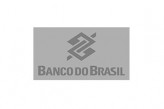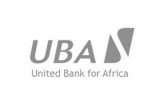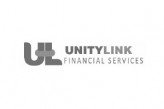Categories
- License, Bank Account & Regulation
- Compliance
- Expanding your send and payout network
- Mobile apps & online
- Integration With Other Banks and MTOs
- Value-Add Services
- Software Platform
- Pricing Models
- System Security & Disaster Recovery
- Business Continuity
- Other
FAQ:faq
-
Can a client start on the rental model and move to the sale model later on?
-
How do the pre-funding and post funding processes work?
-
How does the money move from one end to another in the RemitONE system?
-
Apart from standard remittances, what other types of services can the RemitONE system support?
-
I want to have a web portal for my customers to be able to create transactions online and pay for them with their debit or credit cards. Is this possible on the RemitONE system?
-
Can my business send airtime/ mobile top-ups through the RemitONE system?
-
I have an established money transfer business. Can I connect with international delivery networks of large banks or MTOs if I use RemitONE?
-
Does the RemitONE system integrate with other money transfer operators and banks that are not on the RemitONE system?
-
How can RemitONE platform integrate with my correspondent entity (if the bank is not a RemitONE client)?
-
What is the integration cost between my RemitONE system and another RemitONE client? What is the cost between my RemitONE system and a correspondent bank I wish to work with?
-
If I build my own mobile app or online portal, how can I connect with the RemitONE platform. Do I need RemitONE platform in this case?
-
What payment gateways/processors does RemitONE integrate with to facilitate online credit or debit card transfers?
-
Can people send money to their loved ones via a money transfer app or website?
-
I am starting a remittance business. I need to tie up with delivery agents/payout partners in my destination country. Can RemitONE help me?
-
What international blocklists does the RemitONE platform use?
-
If the AML blocklist check (HM Treasury, OFAC etc.) is done during transaction creation, and the person is flagged (i.e. his/her name is on the list), how does the administrator/agent get notified of it and how do we stop this transaction from going forward to the ACH batch file for further processing?
-
Can the AML blocklist checks – such as OFAC, EU Sanctions, HM Treasury, UN 1267, MAS, SECO, DFAT etc. – be performed by RemitONE’s software platform during remitter/beneficiary registration?
-
Do I really need a system to manage my money transfer business? Why do I need a system if I can work with spread-sheets?
-
I want to set up my own money transfer business. What steps must I take to become operational at the earliest?
-
Can you help with our Remittance bank account in the United States?
-
Can you help with our Remittance bank account in the UK?
-
How long does it take to get our MSB license in the UK?
-
Can you help with Money Service Business (MSB) licenses in the United States?
-
Can you help with Money Service Business (MSB) licenses in the UK and Europe?
-
There are several independent consultants who can help in getting a Money Service Business (MSB) license in the UK and Europe. Why should we use RemitONE?
-
What is the Second Payment Services Directive (PSD2) and why is it important to you?
-
How much does the RemitONE platform cost?
-
How much time does it take for RemitONE to setup my remittance software?
-
How does the money move from one end to another in the RemitONE platform?
-
How do the pre funding and post funding processes work?
-
How does the RemitONE platform handle exchange rates?
-
Can my business send airtime/ mobile top-ups through the RemitONE platform?
-
I want to setup / have an online portal for my customers to be able to create transactions online and pay for them with their debit or credit cards. Is this possible on the RemitONE platform?
-
Does the RemitONE platform integrate with other MTOs and correspondent banks that are not on the RemitONE platform?
-
How can RemitONE platform integrate with my correspondent entity (if the bank is not a RemitONE client)?
-
What is the integration cost between my RemitONE platform and another RemitONE client?
-
Can you help with our Remittance business bank account in the UK and Europe?
-
Can you help me get my SPI and API licenses?
-
How long does it take to get our MSB license in the UK?
-
Can you help with Money Service Business (MSB) licenses in Europe and the US?
-
Can you help with payment institution licenses in welcoming jurisdictions such as Lithuania, Cyprus, Malta, Gibraltar?
-
I would like to become a RemitONE Reseller and promote your products and services in my region. Is this possible? What is the procedure?
-
If I use the RemitONE system, will I have access to correspondent banking networks too?
-
What Business Continuity Program does RemitONE have in place?
-
Does RemitONE have a Disaster Recovery Program?
-
What type of pricing models do RemitONE have?
-
I want to set up my own money transfer business. What steps must I take to become operational at the earliest?
-
Do I really need a system to manage my money transfer business? Why do I need a system if I can work with spread-sheets?
-
What is a money transfer business?
-
Where can I find information on Money laundering regulations?
-
What international block-lists does the RemitONE platform use?
-
If we already have a provider of OFAC check service, how can it be integrated with the RemitONE platform?
-
Can the OFAC checks be performed during remitter/beneficiary registration?
-
If the OFAC check is done during transaction creation, and the person is flagged (i.e. his/her name is on the list), how does the administrator/agent get notified of it and how do we stop this transaction from going forward to the ACH batch file for further processing?
-
What sort of steps can we take once a person or transaction is flagged?
-
I am starting a remittance business. I need to tie up with delivery agents in my destination country. Can RemitONE help me?
-
Can people send money to their loved ones via a money transfer app or website?
-
What about KYC and AML Compliance when providing branchless remittance services?
-
What payment gateways/processors does RemitONE integrate with to facilitate online credit or debit card transfers?
-
I have an established money transfer business. Can I connect with international delivery networks of large banks or MTOs if I use RemitONE?
-
Apart from standard remittances, what other types of services can the RemitONE platform support?
-
Can a client start on the rental model and move to sale model later on?
-
Does RemitONE help start-up companies acquire MSB license and bank accounts?
What Others Say
The RemitONE platform is highly robust, scalable and secure. We use it to reach out to customers via our agent network and online portal. The platform enables us to mitigate fraud and stay compliant at all times through both these channels. Creating compliance rules is very quick and simple in the platform and I strongly recommend it.
Mr Azad Kamrul, CEO
B A Exchange, part of Bank Asia
RemitONE’s platform is robust, easy to use, and at the same time affordable. The system does not require rigorous training or technical skills. We make bold to say that procurement of RemitONE revolutionised the profitability of Africash as the product has recorded huge in crease in profitability. The product moved from a nominal product to one of the bank’s flagship products since the introduction of the platform due to the improvement it brought in the areas of swift transaction processing and quality of service. In fact, all staff have become ambassadors for Africash due to the efficiency of the system. Riding on RemitONE, Africash has turned loss making and low performing offices to super profit business offices in the bank. Income made in the first year of RemitONE deployment has exceeded the past 4 years income.
Nkiru Udechukwu, Product Manager
United Bank for Africa
We implemented RemitONE in UBA for 18 countries. We had a short implementation timeline and a couple of customization and integration with our core system and other solutions. The timeline for completion was very aggressive, but with the relentless support of RemitONE staff and management we were able to go live on time, within cost and the solution surpassed its proposed benefits. I need to mention that the implementation and post go – live were all done remotely; this speaks to the flexibility and agility of the solution and the adaptability of the RemitONE implementation team.
Lanre Bamisebi , CIO
United Bank for Africa










